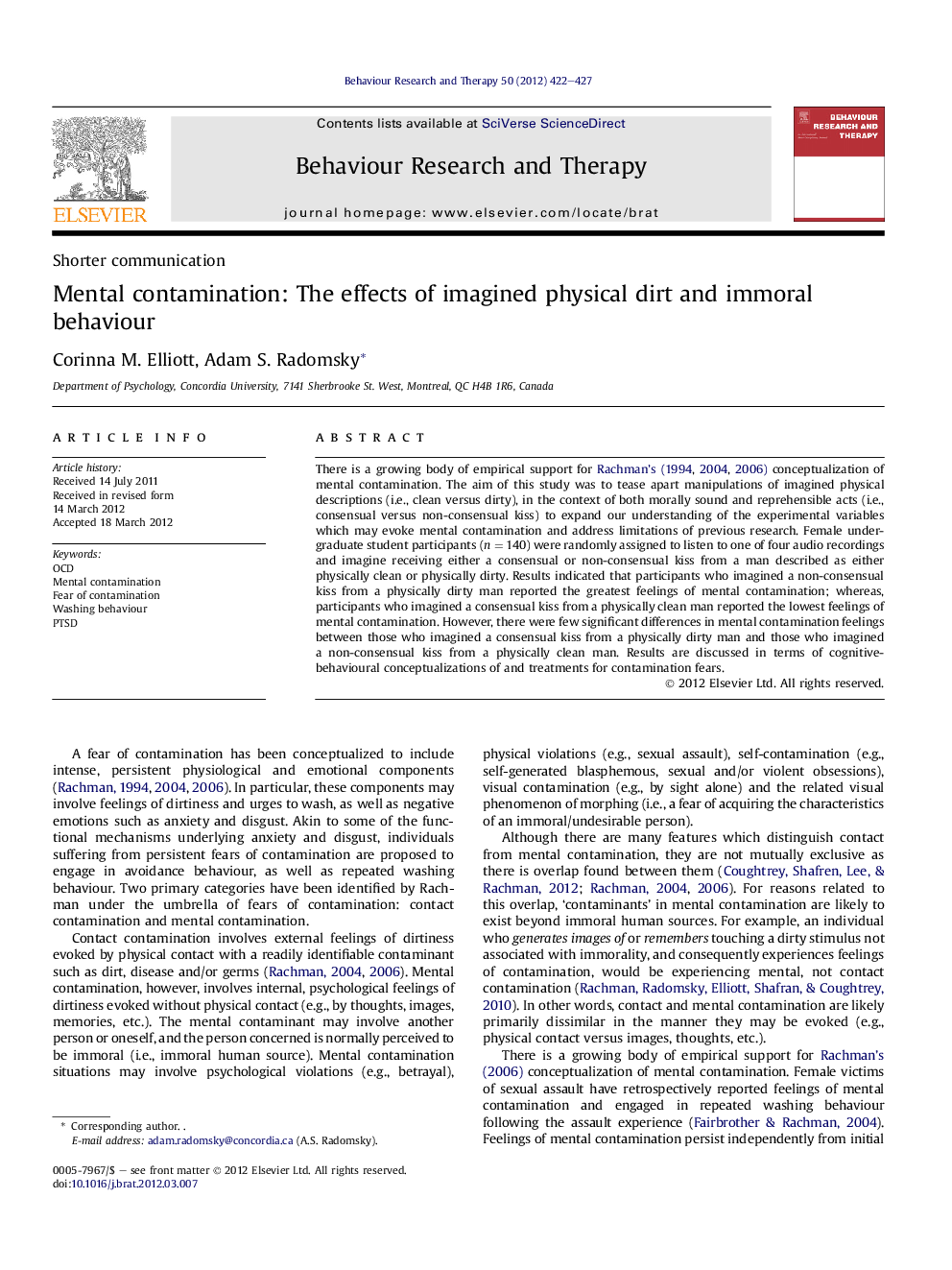| Article ID | Journal | Published Year | Pages | File Type |
|---|---|---|---|---|
| 901956 | Behaviour Research and Therapy | 2012 | 6 Pages |
There is a growing body of empirical support for Rachman's (1994, 2004, 2006) conceptualization of mental contamination. The aim of this study was to tease apart manipulations of imagined physical descriptions (i.e., clean versus dirty), in the context of both morally sound and reprehensible acts (i.e., consensual versus non-consensual kiss) to expand our understanding of the experimental variables which may evoke mental contamination and address limitations of previous research. Female undergraduate student participants (n = 140) were randomly assigned to listen to one of four audio recordings and imagine receiving either a consensual or non-consensual kiss from a man described as either physically clean or physically dirty. Results indicated that participants who imagined a non-consensual kiss from a physically dirty man reported the greatest feelings of mental contamination; whereas, participants who imagined a consensual kiss from a physically clean man reported the lowest feelings of mental contamination. However, there were few significant differences in mental contamination feelings between those who imagined a consensual kiss from a physically dirty man and those who imagined a non-consensual kiss from a physically clean man. Results are discussed in terms of cognitive-behavioural conceptualizations of and treatments for contamination fears.
► Imagined dirt and a non-consensual kiss produced the highest mental contamination. ► Mental contamination was similar between imagined dirt and non-consensual conditions. ► Imagined dirt alone was sufficient to evoke feelings of mental contamination.
